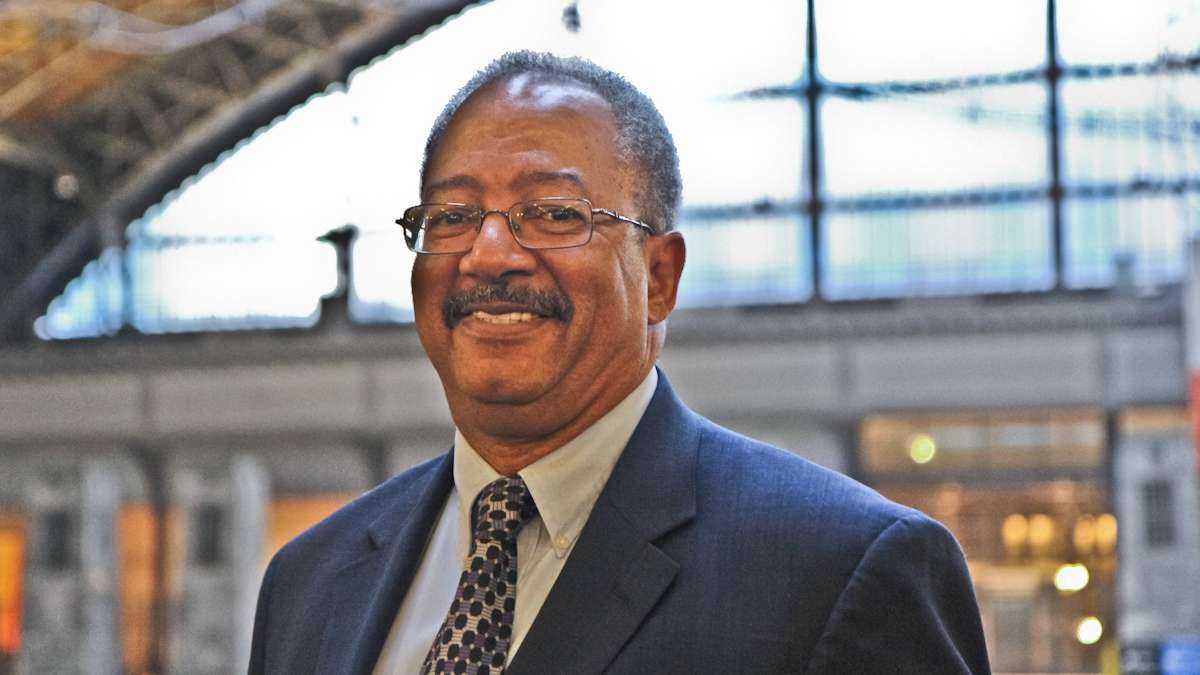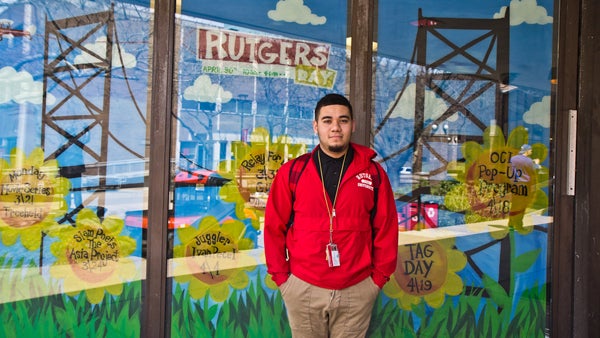Facing indictment and a crowded primary field, Fattah touts his record
Listen
U.S. Rep. Chaka Fattah says he's confident voters will support him next week in the Pennsylvania primary because of his decades of service to the 2nd Congressional District. (NewsWorks file)
Near the bottom of indicted Philadelphia Congressman Chaka Fattah’s campaign website, on the “Real Results” page, is a blunt reminder to voters: Freshmen do not serve on the Appropriations Committee.
The message — in bold, capital letters — follows a list of Fattah’s accomplishments that account for some of the billions in federal funding he says Philadelphia has received during his two-plus decades in office.
Fattah, 59, has always viewed his record and seniority as strong selling points, but he’s never had to hit them so hard while seeking re-election.
That’s because this election cycle is unlike any other. On Tuesday, voters will have to decide how much Fattah’s federal corruption charges matter to them — whether the allegations against him are enough to choose one of his three challengers in the Democratic primary.
Fattah hasn’t had a primary challenger since 1994, but remains confident his record will win him a 12th term.
Signed, sealed, delivered
“The voters of my district, if you go to these forums, are not asking about this [indictment] — they’re not focused on it. They’re focused on the work that we’ve done,” said Fattah in an interview.
Fattah has secured millions for the 2nd Congressional District, which includes parts of North, Northwest and West Philadelphia, as well as most of Lower Merion Township in Montgomery County.
The money has come through legislation and earmarks, and it’s helped support a variety of programs in education, transportation and housing. And he takes credit for putting more money in his constituents pockets, too.
“There are tax cuts, this is spending via the tax code, but it is spending nonetheless,” said Fattah.
Assessing Fattah’s talent for sending money to the district is difficult. It’s easy to find how much his district received from a particular federal department in a given fiscal year, but with general congressional appropriations it’s harder to pinpoint how much Fattah — or any legislator — had to do with the decision.
It is possible to tally “earmark” spending — congressional appropriations requested by a particular member, a practice that ended a few years ago.
The watchdog group, Public Citizens Against Government Waste studied earmarks from 2008 to 2010, and found Fattah racked up 72 earmarks totalling nearly $75 million.
It sounds like a lot, but it doesn’t put Fattah among the elite congressional performers in bringing dollars back to his district.
In fiscal year 2008, Fattah was ranked 236th out of the 435 members of the House.
In fiscal year 2009, he was 229th.
Fiscal year 2010 was his best year. He was 130th, putting him in the top third of Congress.
Either way, voters have routinely returned Fattah to Congress based on his ability to deliver funding to the district year after year after year.
‘An opportunity to aspire’
On the campaign trail, Fattah often touts a pair of college-readiness programs he created — GEAR Up and CORE Philly, now CORE Scholars.
Together, the programs represent a roughly $5 billion investment in education.
“What I’ve done through these programs is take young people who have been written off and we think we’ve written them back in. We’ve given them an opportunity to aspire to and to go to college,” said Fattah.
GEAR Up, a national program, stands for Gaining Early Awareness and Readiness for Undergraduate Programs.
The goal is to make college a realistic goal and prepare students for the transition — academically, financially and mentally.
Students tour college campuses, get SAT prep, and learn how to navigate the financial aid landscape.
Ideally, students enroll in middle school and stay in all the way through high school.
Jason Rodriguez grew up in North Philadelphia and participated in GEAR Up through high school. He’s now finishing his freshman year at Rutgers University-Camden, but he still keeps in touch with program leaders. He said they motivate him to stay on track, to be the first one in his family to go to college and graduate.
 Jason Rodriquez participated in the Gear Up program and is now a freshman at Rutgers. (Kimberly Paynter/WHYY)
Jason Rodriquez participated in the Gear Up program and is now a freshman at Rutgers. (Kimberly Paynter/WHYY)
“Sometimes you’re just like, ‘Ah, I don’t want to write this paper. It’s six pages and it’s about a topic that’s not really important to me,’ but, you got to remember, there’s people counting on you to do well. They want to see you graduate. They want to see you successful,” said Rodriguez.
Since its start in 1999, Fattah said, the program has helped more than 12 million students. He’s made that claim at debates and in interviews.
It’s not completely accurate. The figure comes from adding up the number of students enrolled every year over a long period. Since students remain in the program for multiple years, the 12 million number counts many students multiple times.
The U.S. Department of Education can’t say how many kids were helped overall.
That doesn’t bother Fattah.
“I don’t have any quarrel with the number. And I’m willing to say that if it’s short by a million or embellished by a million, I’m fine with it,” he said. “There’s nobody in Congress who has sent more kids to college than me.”
Quarterback controversy
CORE Philly’s numbers are accurate. The program has provided more than 23,000 seniors “last-dollar” scholarships to help cover first-year college costs at the Community College of Philadelphia and a host of state and state-related schools.
But the program isn’t without controversy.
Most recently, it was cited in the government’s federal racketeering case against Fattah.
The indictment alleges that Karen Nicholas, a former CEO of the Educational Advancement Alliance and Fattah congressional staffer, used $100,000 intended for CORE Philly to help Fattah repay part of an illegal $1 million loan to his failed mayoral campaign in 2007.
Fattah calls the allegation untrue.
“I don’t think there’s any basis for the allegation whatsoever,” he said.
Fattah’s federal corruption trial is scheduled for mid-May — nearly a month after the Pennsylvania primary.
In the meantime, he said voters are more concerned with that he’s accomplished in the district and what losing his seniority in a seniority-driven Congress would mean going forward.
“What you would be trading is an experienced quarterback, who is used to playing in the playoffs at the upper echelons of the league, for a freshman, who may one day become a superstar unto themselves. In the meantime, the team is going to suffer,” said Fattah.
Given the choice, Fattah is sure voters will choose him on April 26.
State Rep. Dwight Evans, Philadelphia ward leader Dan Muroff and Lower Merion Township Commissioner Brian Gordon are also running.
Each of them entered the race after federal prosecutors released a 29-count indictment accusing Fattah and four associates of using campaign contributions, charitable donations and grant money for personal and political gain.
Fattah is charged with racketeering, bribery, wire fraud and other offenses. He maintains his innocence and predicts prosecutors will have a tough time proving the “frivolous” allegations he faces.
“The problem for those who are trying to pull it off is that you’re not painting on a blank canvas. I have a very good reputation,” said Fattah
WHYY is your source for fact-based, in-depth journalism and information. As a nonprofit organization, we rely on financial support from readers like you. Please give today.





